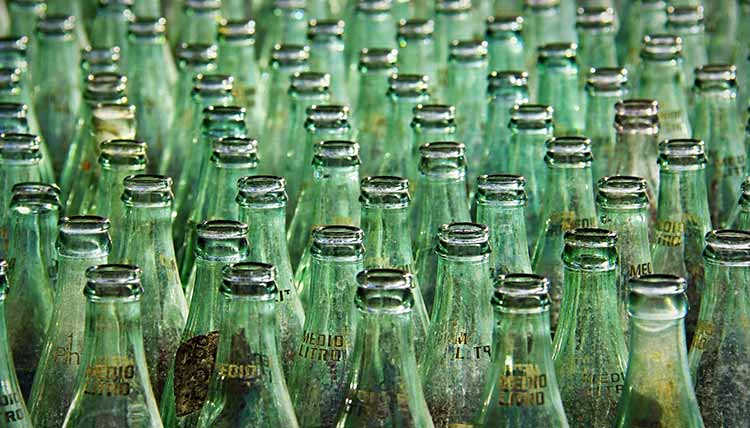Plastic water bottles are a known danger to the environment, and probably a health hazard to consumers as well, as the chemicals found in plastic bottles can seep into the contents. The main culprit is Bisphenol A (BPA), an organic synthetic compound widely used in plastics, which may cause diabetes, high blood pressure and even cancer.

While glass bottles are considered safer for use, and can also be recycled, they are still a major source of pollution. In Hong Kong alone, glass bottles are the bulk of glass waste (over 80%), being disposed of at landfills at an alarming rate of 250 tons per day.
The answer of course, is paper bottles, and a few companies are already making them.
Ecologic Brands, Inc. from California have developed the ECO.BOTTLE®, commercially-viable paper bottles made from recycled fiber and polymers. These bottles have an outer shell made of recycled cardboard & newspaper and a thin inner liner made of post-consumer recycled plastic (to keep the liquids from absorbing to the paper shell). Ecologic Brands have partnered with L’Oréal and Unilever, and some of their products are already on the market.
BillerudKorsnäs AB from Sweden already manufacture 100% primary fiber packaging for the food and beverage industry, mainly containers, paper cups and liquid packaging. They have recently collaborated with some of the world’s leading players in design and technology to develop the innovative Paper Bottle. The prototype is manufactured in a technique called ‘thermoforming’, where fiber mass is injected and dried under high pressure in a closed form. This makes it possible to produce any shape, while the fiber combination gives the Paper Bottle its strength, enabling strong and durable bottles.
BillerudKorsnäs recently joined manufacturing specialist Alpla to form Paboco®; the paper bottle company, located in Copenhagen. They aim to create the world’s first 100% bio-based and recyclable paper bottle, in which the inner liner that holds the liquids and vapor is also bio-based, as opposed to other paper bottles.
The fiber blend is made of sustainably sourced Nordic fibers developed to hold carbonated beverages, the bottle cap is made of paper and the printing uses sustainable ink. In addition, for every tree being harvested – two to three are planted and allowed to grow to an optimal size. Thanks to continuous replanting, there are more trees growing in this region today than 100 years ago.
Major beverage brands such as Carlsberg Group, Coca-Cola Europe and Absolut Company have joined Paboco in an attempt to reach zero carbon emissions by the next decade. At the C40 World Mayors Summit in Copenhagen, Carlsberg said that the “Green Fiber Bottle” prototypes will be produced from sustainably sourced wood fibers and can be recycled completely.
